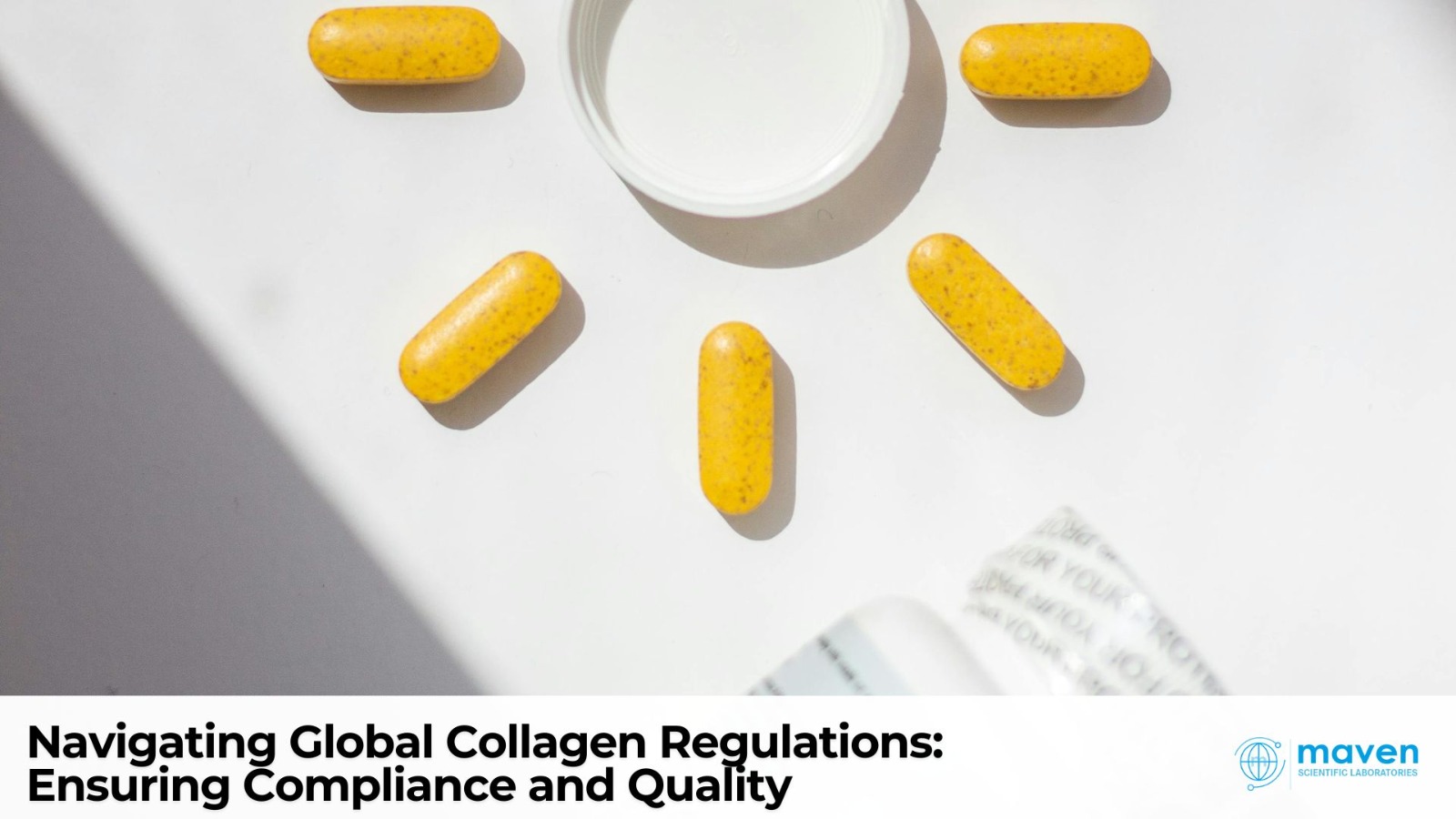Navigating Global Collagen Regulations: Ensuring Compliance and Quality
April 07, 2025
Introduction
The global collagen market has witnessed remarkable growth, fueled by increasing consumer awareness of its health benefits. From supporting skin elasticity to promoting joint and bone health, collagen peptides are widely incorporated into functional foods, beverages, and dietary supplements. However, marketing collagen-based products internationally requires adherence to diverse regulatory frameworks. Each country imposes unique requirements concerning safety, quality, and labeling, making compliance a fundamental aspect of market entry.
This blog explores the regulatory landscapes governing collagen peptides in key global markets, including the United States, the European Union, and India. Understanding these regulations is essential for businesses to maintain product integrity, meet compliance standards, and build consumer confidence.
United States: FDA Oversight and GRAS Status
The U.S. Food and Drug Administration (FDA) regulates collagen peptides under food and dietary supplement categories, ensuring they meet safety and labeling standards.
GRAS Status and Safety Compliance
Collagen peptides used in food must be Generally Recognized as Safe (GRAS). This designation requires:
- A comprehensive scientific review, including toxicological and safety studies.
- Sourcing from approved origins with validated processing methods.
- Adherence to FDA food safety guidelines.
Dietary Supplement Regulations
When marketed as a dietary supplement, collagen products must comply with the Dietary Supplement Health and Education Act (DSHEA), which mandates:
- Accurate labeling specifying collagen source and concentration.
- Avoidance of misleading health claims without scientific substantiation.
- Compliance with Current Good Manufacturing Practices (cGMP) for safety and quality.
European Union: EFSA and Novel Food Regulations
In the European Union (EU), the European Food Safety Authority (EFSA) oversees food safety regulations, ensuring collagen peptide products meet stringent quality and safety standards.
Novel Food Approval
Collagen peptides may require authorization under the Novel Food Regulation if they were not widely consumed in the EU before May 1997. The approval process entails:
- Submitting safety assessments, including toxicology evaluations.
- Providing historical consumption data and nutritional analysis.
EU Labeling Standards
Product labels must:
- Clearly list collagen as an ingredient, specifying its source (bovine, marine, porcine, etc.).
- Provide accurate nutritional and compositional information.
- Avoid unapproved health claims unless backed by EFSA-reviewed scientific evidence.
India: FSSAI Regulations for Collagen Peptides
The Food Safety and Standards Authority of India (FSSAI) governs the safety, quality, and labeling of collagen peptides under the Food Safety and Standards Act, 2006.
Safety and Quality Standards
- Collagen peptides must be derived from FSSAI-approved sources (bovine, porcine, or marine).
- Processing techniques must eliminate contaminants and adhere to microbiological and heavy metal limits.
- Products must comply with FSSAI’s chemical residue standards.
Labeling Guidelines
Collagen product labels must:
- Indicate the presence and source of collagen.
- Specify the exact collagen concentration.
- Ensure all health claims are scientifically validated and FSSAI-approved.
Strategies for Regulatory Compliance in Global Markets
For companies looking to expand internationally, regulatory compliance is critical. Here are key strategies for seamless market entry:
1. Understand Regional Regulatory Frameworks
- Conduct in-depth research on the specific collagen regulations of each target market.
- Keep track of evolving regulatory trends and amendments.
2. Collaborate with Regulatory Experts
- Engage consultants specializing in food safety and compliance.
- Seek expert guidance for regulatory documentation and approval processes.
3. Ensure Transparent and Accurate Labeling
- Clearly state collagen source, purity, and nutritional content.
- Avoid misleading health claims to prevent regulatory repercussions.
4. Maintain High Manufacturing Standards
- Follow Good Manufacturing Practices (GMP) for consistent product quality.
- Implement stringent quality control and testing procedures.
5. Stay Updated on Regulatory Changes
- Regularly monitor updates from FDA, EFSA, FSSAI, and other regulatory bodies.
- Participate in industry forums and subscribe to regulatory publications.
Conclusion
Navigating collagen regulations in global markets requires a strategic approach to compliance, safety, and quality. By adhering to FDA, EFSA, and FSSAI guidelines, businesses can enhance consumer trust and ensure successful market entry. Collaborating with regulatory experts, maintaining high manufacturing standards, and adopting clear labeling practices are vital steps for global expansion. As demand for collagen peptides continues to rise, companies that prioritize compliance will gain a competitive edge, foster brand credibility, and achieve sustainable growth in the international marketplace.


Post a comment